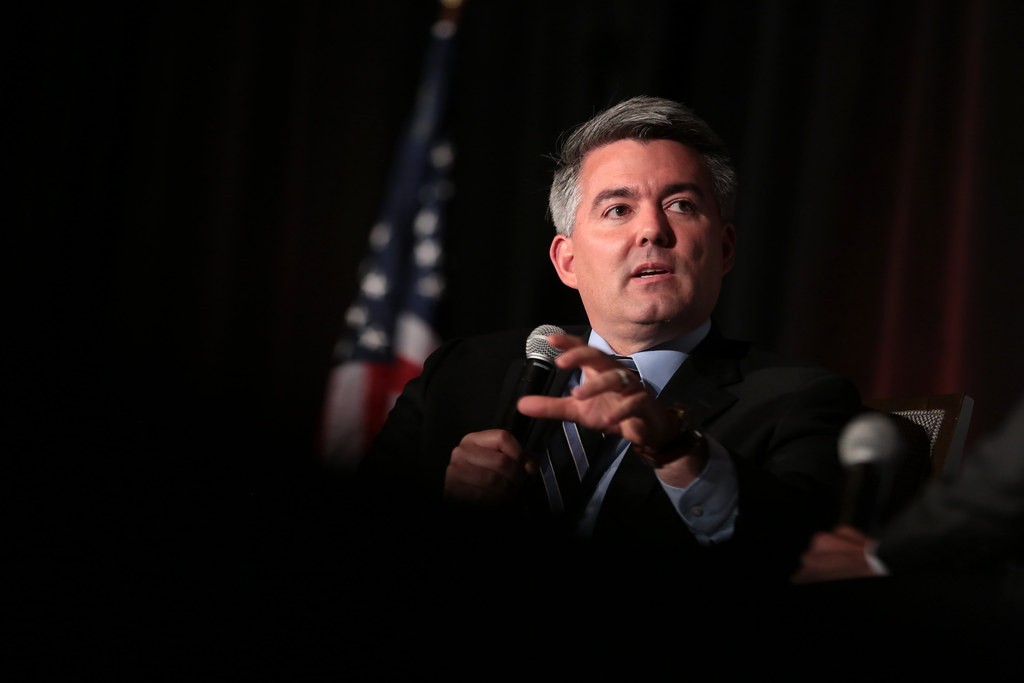WASHINGTON DC — As the impeachment trial begins in the Senate today, the scrutiny on Colorado’s Cory Gardner grows.
Speculation has filled a vacuum left by the Republican senator himself, who has made few statements to the press about how he views the impeachment trial of President Donald Trump, in which he is now a juror. And Gardner himself couldn’t be reached to explain his stance.
Among experts on Colorado politics, though, the consensus is clear: Gardner can be expected to fall in line with the Republican caucus, except for the possibility of voting for some witnesses or a similar concession, if it’s done with a group of GOP senators.
In the words of Norm Ornstein, resident scholar at the American Enterprise Institute: “He’s a partisan.”
“I would be very surprised, at least knowing what we know now, if Gardner defects from his party’s line on the final impeachment vote,” Kyle Saunders, a professor of political science at Colorado State University, wrote in an email.
Miles Coleman, associate editor of Sabato’s Crystal Ball at the University of Virginia Center for Politics, wrote that he “wouldn’t expect Gardner to deviate from the Republican leadership.”
Gardner himself became a member of the Senate’s Republican leadership in 2016, and he currently serves as deputy whip.
A Possibility of a Smaller Act of Rebellion
As senator of a purple state, simply following the Republican party line may be too divisive of a political tack, and some experts saw the possibility of a smaller act of rebellion via a vote on allowing additional witness testimony—but only if the crowd is already moving that way anyway.
“If there is a vote taken on witnesses, and it appears that a majority supports limited witnesses, I could see Gardner making the calculus to support something like that, but only if it’s some sort of limited scenario,” wrote Saunders. “I don’t see Gardner supporting a free-for-all ‘as many witnesses as can be called’ scenario unless things are going very badly for Trump.”
“And it’s still not likely that it will go badly for Trump with Leader McConnell running point,” wrote Saunders.
According to Ornstein, he’s likely to follow the lead set by Senator Susan Collins of Maine and allow a few more witnesses, including Hunter and Joe Biden, and possibly reprimand the president.
But ultimately, “people don’t vote alone,” according to Seth Masket, a political scientist at the University of Denver. “[Gardner is] not going to stand that far out.”
Democratic political consultant Steve Welchert said Gardner is already “off-script” in his public communications on the Senate trial by not defending Trump more aggressively, besides calling the House impeachment vote a “total circus.”
Some experts said this tactic—maintaining a neutral public image while reliably voting along party lines—has been a characteristic of Gardner’s style of politics since the beginning of his term.
Ornstein noted that No Labels rated Gardner a “moderate” during his 2014 election, as he billed himself a solutions-oriented “problem solver” at the time.
“There is nothing in the record—no votes—to suggest he is a moderate,” he said.
A similar scenario played out during the Senate votes to repeal Obamacare in 2017, when Gardner’s noncommittal public statements cane in advance of repeated votes in favor of repeal.
Gardner “will signal open-mindedness, but is likely to vote with the rest of his caucus,” said Masket.
According to Coleman, Gardner’s voting record as a whole demonstrates his adherence to the Republican agenda at all turns, his public statements notwithstanding.
“He voted for both Trump’s Supreme Court picks, the GOP tax bill, ACA repeal, and was supportive of the President’s emergency border declaration last year,” he wrote.
“Throughout his tenure, on the big votes, he usually seems more like a senator from deep red Wyoming instead of a light blue state like Colorado,” said Coleman.
CORRECTION: Gardner remains on the U.S. Senate leadership team, currently serving as deputy whip. Due to an editing error, this post initially stated that he was no longer a GOP Senate leader.




